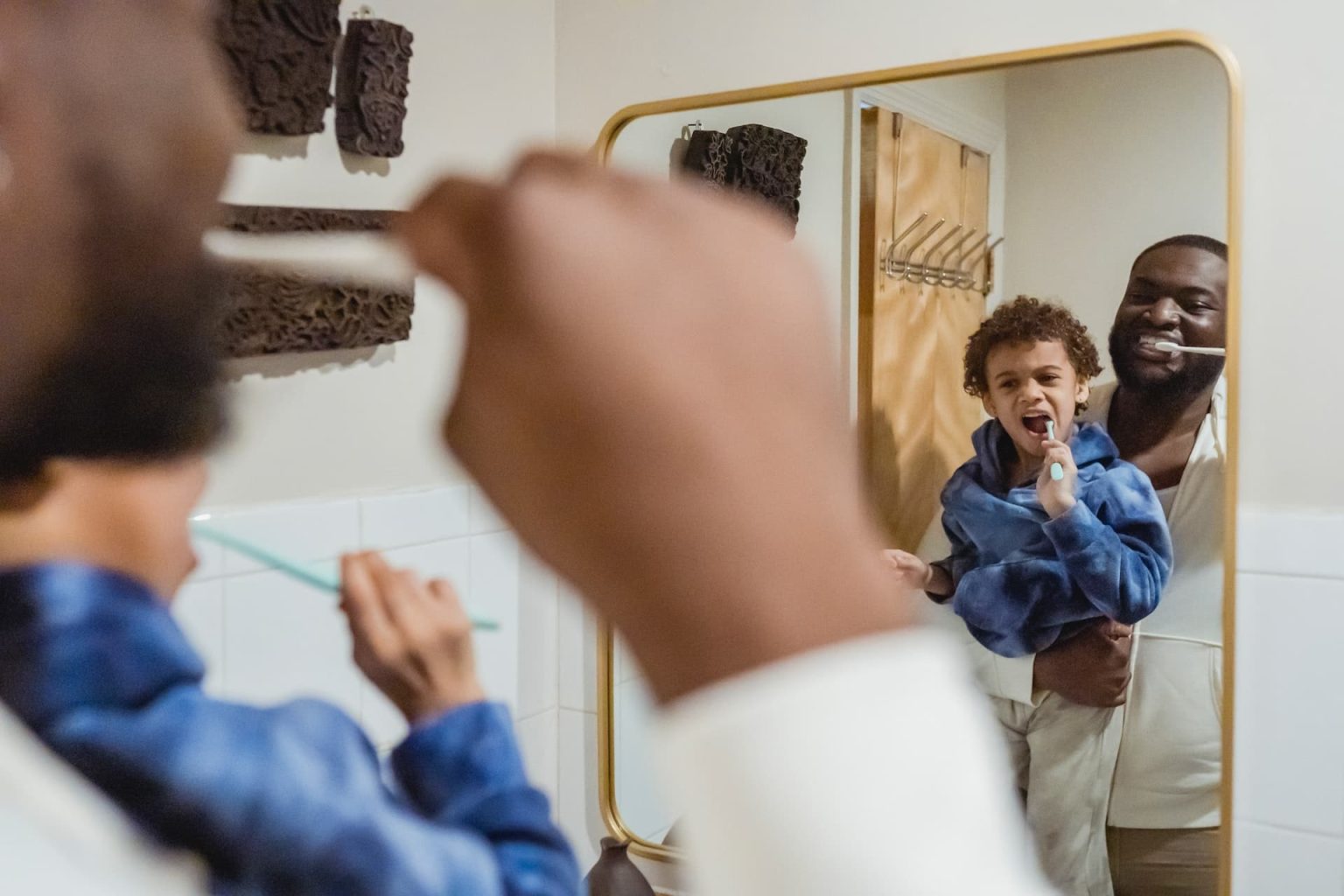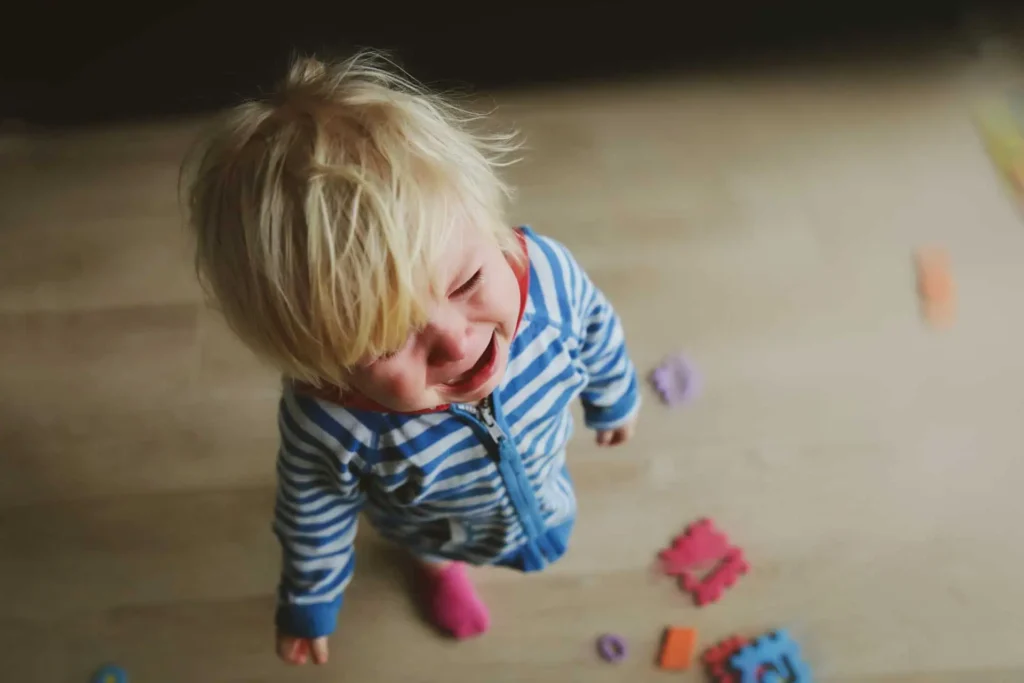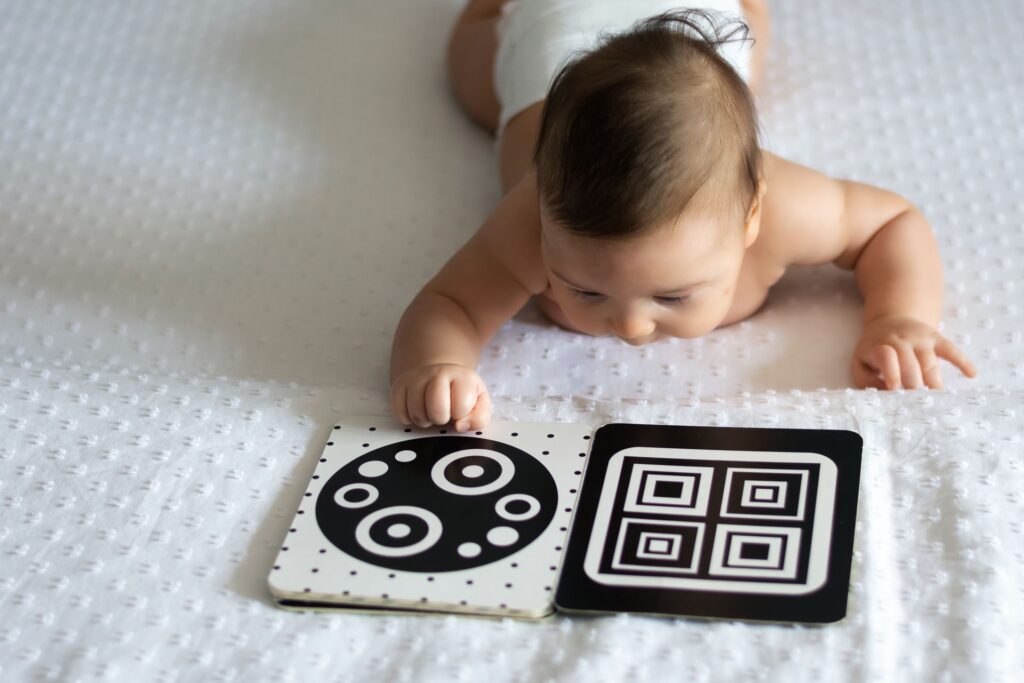Does your headstrong toddler refuse to brush their teeth? If you give in every once in a while, you're not alone. Here, a dental expert explains how to keep toddler teeth healthy and encourage better oral hygiene.
At ages three and four, my boys have every kind of musical/character/themed/personalized toothbrush and every Cars/Thomas/Toy Story toothpaste. Even so, my toddlers won't brush their teeth—especially not my begging/pleading/whining/stressing. For help, I turned to Dr. Justin Ben Zvi, who practices general dentistry, for tips to brush toddler’s teeth.
Don't fret if your water is fluoridated
The good news is Zvi says most parents don’t need to worry when reluctant toddlers won’t brush their teeth. “Preschoolers who don’t brush on a regular basis aren’t necessarily more prone to a higher incidence of cavities,” he says. I definitely feel great relief.
“Most kids now live in areas with fluoridated water, which acts to re-mineralize the enamel of children’s teeth throughout the day. You don’t want to give kids too much toothpaste, but you want to use a small amount and have kids brush their teeth because it influences a clean mouth, good habits and can prevent cavities and tooth decay,” he says. (Note that many brands of bottled water don’t contain fluoride.)
Put some fun into brushing
Dr. Ben Zvi says kids typically won't brush their teeth because parents go about it the wrong way, treating it like a chore. Toddlers do often need help – making sure there is only a pea-sized dab of toothpaste on their brush, for example. But parents don’t need to take over the brushing expeirence. Zvi suggests turning toothbrushing into a fun activity so it’s more enjoyable. Here are some of Dr. Zvi’s tips to brush toddler’s teeth:
- Play music while you brush and make it part of a dance party
- Tell, show, do: Brush your teeth with them morning and night. Kids like to mimic parents and will likely want to brush like you do. Then check to make sure they’ve done a good job. As a general rule, the Canadian Dental Association (CDA) suggests that when your child can write their name, they are ready to brush without guidance
- Even before they are two years old, take your child to the dentist. Your dental office will ensure their appointment is fun and make their experience a positive one. In fact, the CDA encourages parents to bring their baby to the dentist for a check-up within six months of the eruption of the first tooth or by one year of age
Avoid sharing cavity-causing bacteria
Besides making oral hygiene fun, parents have an even bigger role to play in their child’s dental health by looking after their own teeth.
“Children are susceptible to cavities in part because of their parents’ oral hygiene habits,” says Dr. Ben Zvi. “If a parent’s mouth has cavity-causing bacteria, they are more likely to transfer it to a child by sharing food, cutlery and drinks.”
In fact, next to the common cold, tooth decay (cavities) is the second most prevalent shared disease. Just like colds, tooth decay can be transmitted person-to-person and even tooth-to-tooth, says Dr. Ben Zvi. That’s why parents must also brush regularly and visit the dentist to decrease the risk of transmitting bacteria.
“Parents are the first line of defence. It’s really their job to be monitoring and ensuring their child recognizes the importance of healthy teeth.”
How to reduce cavities in toddlers
Give your little ones the best step forward with these cavity-prevention tips:
- Avoid sticky snacks, because they increase the amount of time that the mouth is acidic Instead, foods like vegetables and cheese will help neutralize the acids in a child’s mouth.
- Don’t put your kids to bed or nap with a bottle filled with juice or milk, which will also penetrate tooth enamel. Offer water instead.
- Discourage thumb sucking, if possible. After permanent teeth start to come in, this can lead to problems with how the jaw and teeth grow. If your preschooler needs to suck to soothe him or herself, use a pacifier instead, but don’t put sugar, honey or corn syrup on a soother as this can cause cavities.
Something to Chew On
- Baby teeth come in at four to six months.
- Babies, on average, have four teeth come in every six months.
- By age two, children have a full set of 20 baby teeth.
- By age five or six, kids start getting their adult teeth. They will have 32 in total.
For more information on tooth decay and a step-by-step brushing guide, visit the Canadian Dental Association at cda-adc.ca.
Originally published in ParentsCanada magazine, November 2013; updated February 2024










